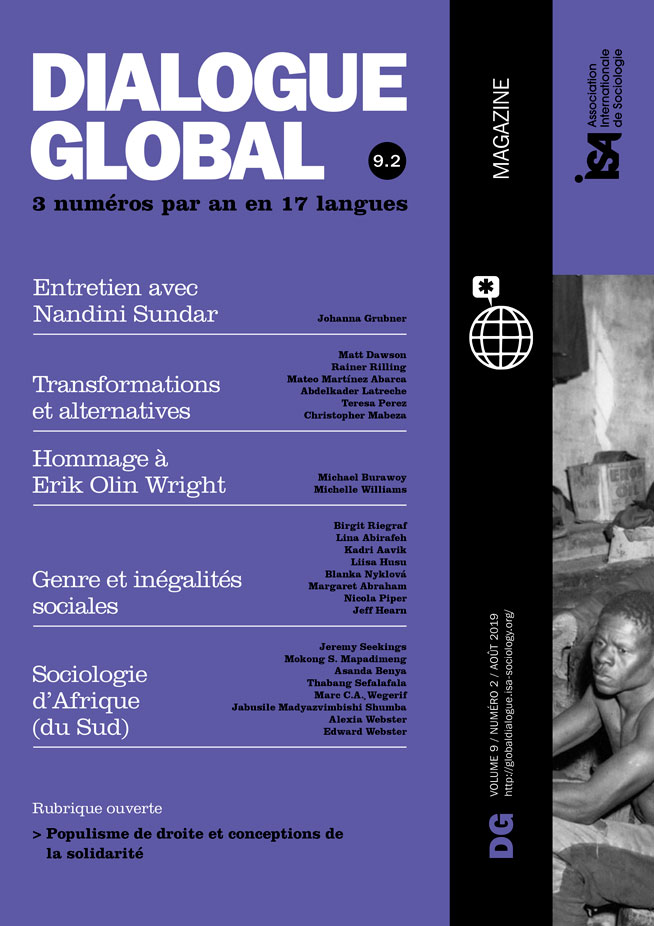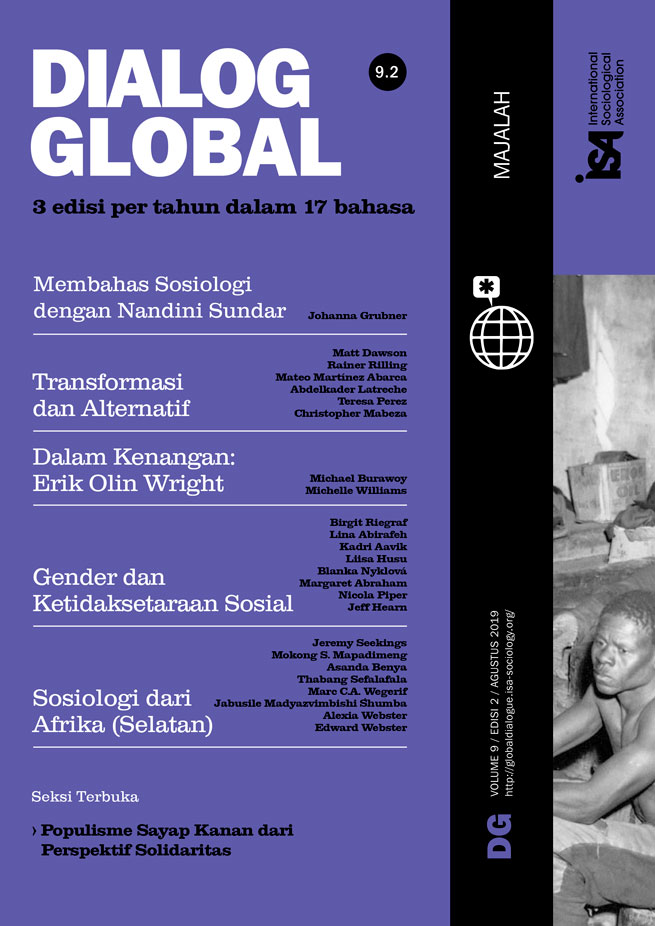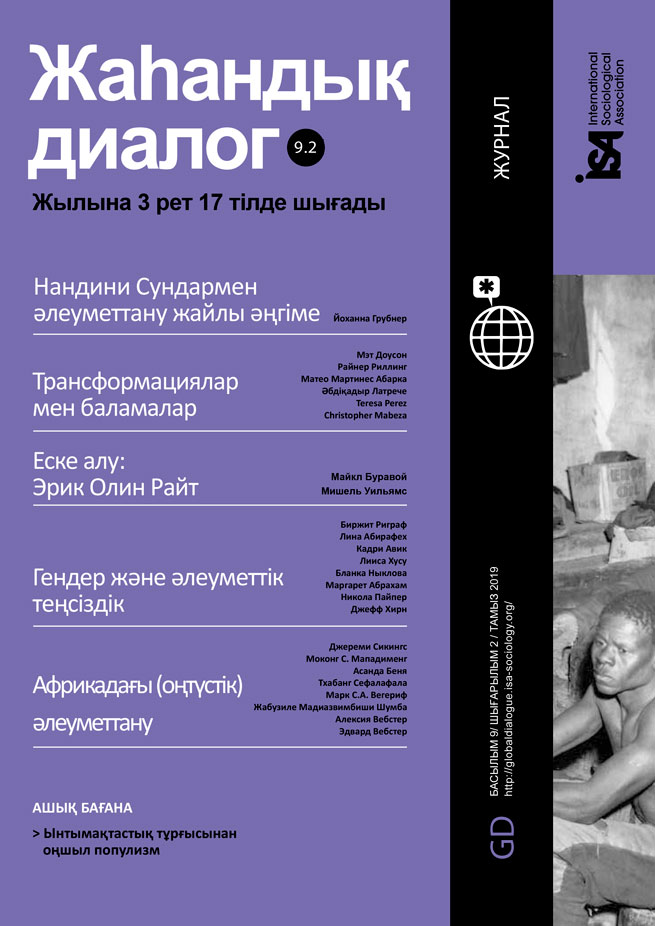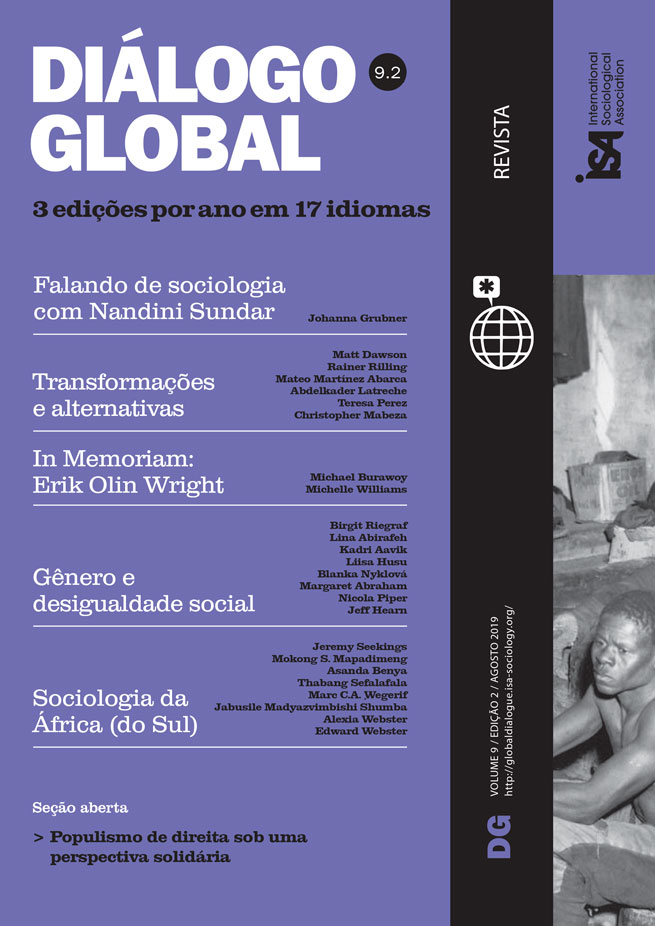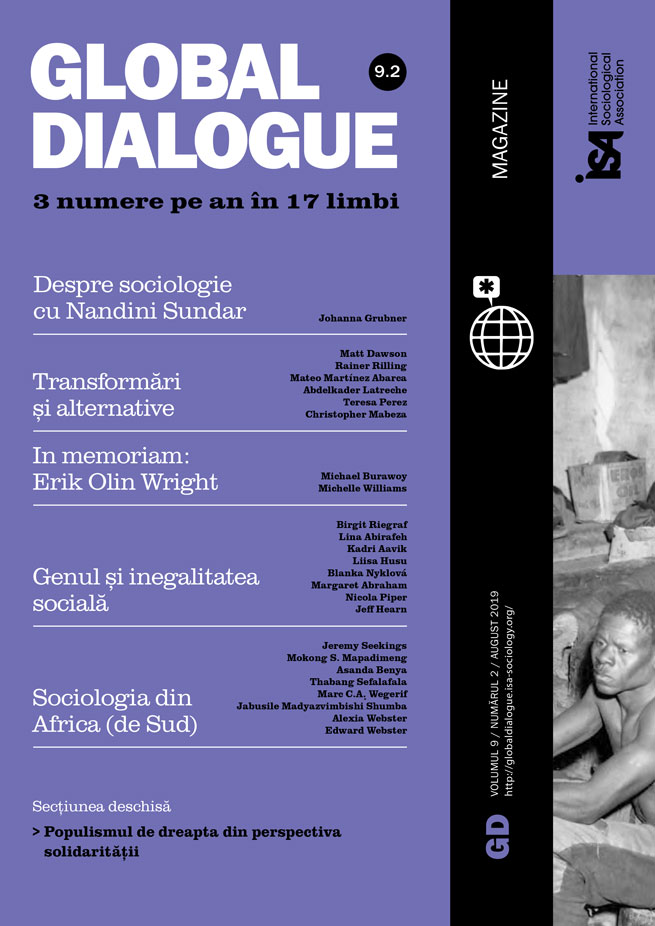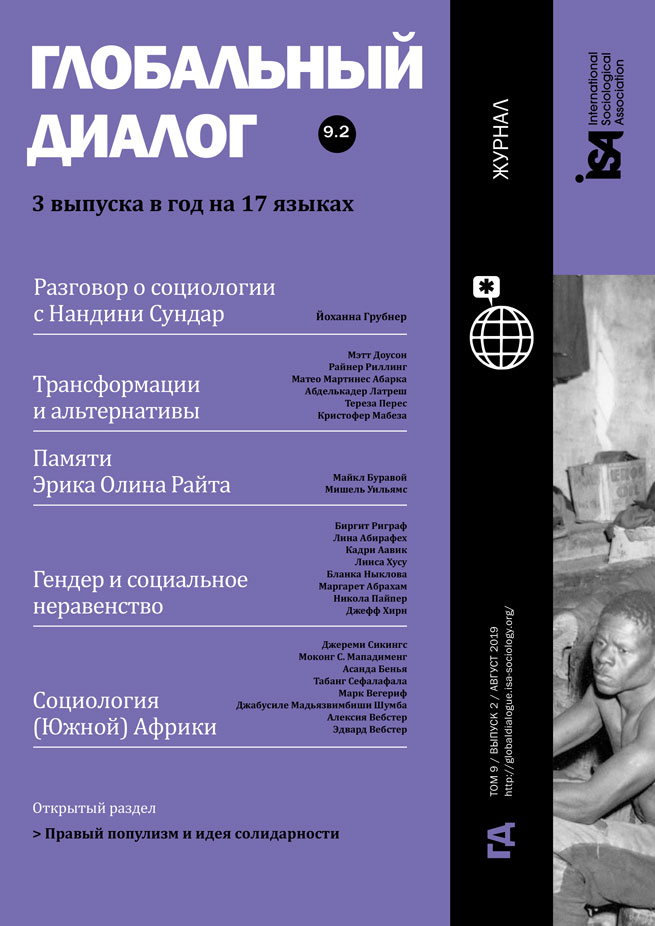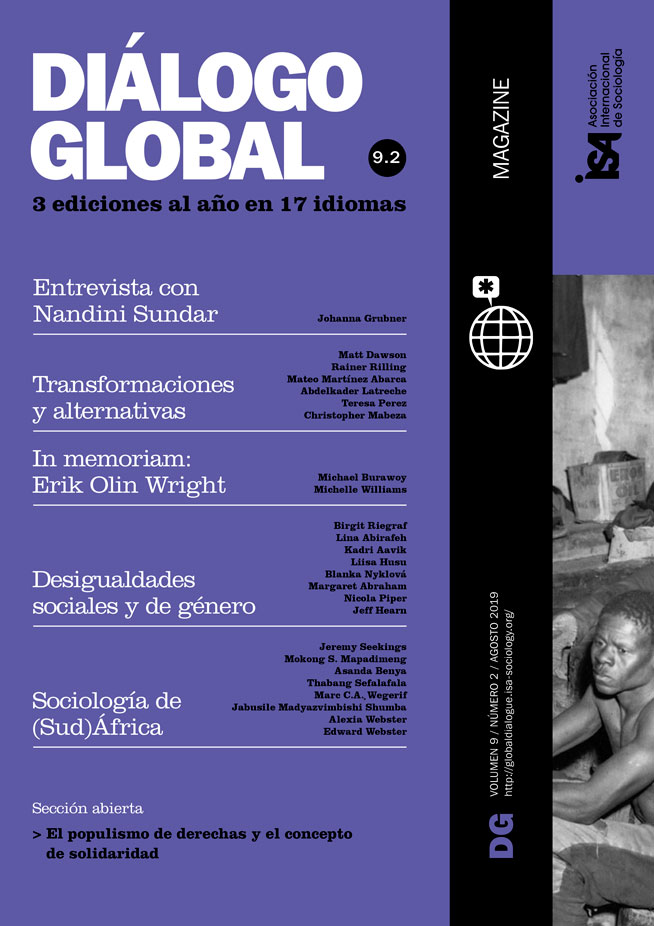Read more about In Memoriam
Remembering Erik Olin Wright
by Michelle Williams
June 21, 2019
Where did it begin? It’s difficult to say. Erik himself liked to trace his interest in utopias to 1971 when he was a student at the Unitarian-Universalist seminary in Berkeley, avoiding the draft. It was then that he organized a student-run seminar called “Utopia and Revolution” to discuss the prospects for the revolutionary transformation of American society. He then worked at San Quentin State Prison as a student chaplain, joining an activist organization devoted to prison reform.
This prepared him well to be a graduate student at Berkeley in the heady days of the early seventies and he became a major figure in the intellectual project of those days: to reinvent sociology as a Marxist discipline. So Erik’s dissertation challenged mainstream sociology not on ideological grounds but on scientific grounds. He demonstrated that a reconstructed Marxist definition of class could explain income disparities better than existing models of stratification and human capital theory.
At the same time as he was challenging sociology, Erik was reinventing Marxism. The middle class had long been a thorn in the side of Marxism – it was supposed to dissolve yet it seemed to get bigger. Together with Luca Perrone, Erik solved the problem by introducing the concept of “contradictory class locations.” There were three such contradictory class locations: small employers between the petty bourgeoisie and large-scale capital; supervisors and managers between capital and wage labor; and semi-autonomous employees between wage labor and the petty bourgeoisie.
Taking up a position as assistant professor at the University of Wisconsin–Madison in 1976, Erik began to develop a research program of class analysis. As existing surveys were not designed to map his new categories, he administered his own national survey, designed to capture his class categories. In this era of Marxist ascendancy, his ideas spread and soon he had organized teams in a dozen other countries, fielding parallel surveys.
If there is one trait that threads through his scholarly work – and indeed through his life – it is the determination to get things right. This not only entailed developing a close dialogue between theoretical elaboration and empirical research, but also deepening the internal logic of his analytical schemes. You can trace the evolution of his thinking through his books, starting with Class, Crisis and the State (1978), followed immediately by the publication of his dissertation, Class Structure and Income Determination (1979), and then to the deeper shift that came with his adoption of John Roemer’s notion of exploitation in Classes (1985), and his response to his critics in The Debate on Classes (1989).
In 1981, Erik joined a group of brilliant social scientists and philosophers, among whom he was most influenced by the philosophers G.A. Cohen and Philippe van Parijs and the economist John Roemer. They pioneered “Analytical Marxism,” known more colloquially as “no bullshit Marxism,” clarifying the foundations of Marxism in a no-holds-barred grilling of each other’s work.
Although from its beginning Marxism had an allergy to utopian thinking, after 1989 the political conjuncture called for just that. Erik took up the challenge. Directly contesting the pathos of the new conservatism he advanced a socialist agenda by laying out alternatives to capitalism, but discovering their nuclei within capitalist society.
The new project began in 1991, the very year the Soviet Union collapsed. Erik inaugurated a series of conferences to discuss “real utopias” – not some speculative ideal world but real alternatives that can be found within actually-existing societies. Conference topics included associative democracy, market socialism, participatory democracy, universal income grants, and gender equality. The conference papers were published in a book series that Erik assembled, culminating in his own magnum opus, Envisioning Real Utopias.
Erik was returning sociology to its founders – Marx, Durkheim, and Weber – who had been less squeamish about building their theoretical architectures on moral values than the professionals of today. Erik was explicit in defining sociology’s project as understanding the institutional possibilities for realizing those values.
In the last years of his life Erik discovered that these real utopias were very appealing to activists. He spent much time traversing the world talking to groups keenly interested in hitching his ideological-intellectual framework to their own projects. So he set about rendering Envisioning Real Utopias in an accessible form, removing the clutter of academic chatter, creating a handbook of anticapitalism which he fittingly called How to Be an Anti-Capitalist in the 21st Century.
Those in the trenches of civil society were enthusiastic to hear this positive message. Here was an intellectual paying tribute to their largely invisible labors, contesting capitalism against all odds, enduring insults and reprisals.
Erik leaves us with both a way of thinking and a way of being. Let me be blunt. I know of no one who thought more lucidly, more cogently, more speedily, more effortlessly than Erik; no one who so effectively cut to the chase as to what was at stake in any issue, any paper, any book. We can’t be like him, but we can be inspired by what he has laid down, to follow in his footsteps, guided by his map, refashioning it as we move forward.
Note: This is a shortened version of an article published in Jacobin in January 2019. The original can be found here.
Michael Burawoy, University of California at Berkeley, USA
This issue is not available yet in this language.
Request to be notified when the issue is available in your language.
If you prefer, you can access previous issues available in your language:






